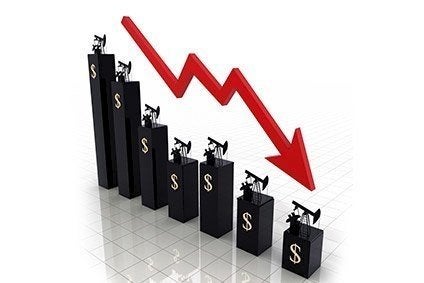
A leading Russian economist says sanctions imposed by the European Union and the US prevent companies borrowing on international markets.
The issue is of concern to many Russian companies as they struggle to raise finance through domestic loans with the current interest rate having powered to 14% and as a depreciating rouble and high inflation dampen automotive demand in the country.

Discover B2B Marketing That Performs
Combine business intelligence and editorial excellence to reach engaged professionals across 36 leading media platforms.
However, the falling currency is making Russian OEMs and component manufacturers far more competitive as overseas rivals with little localisation face soaring costs, but it is access to finance that remains problematic.
“Sanctions stop companies from borrowing in international markets,” said Sberbank chief economist, Evgeny Gavrilenkov at the the recent Russian Automotive Forum in Moscow. “The problem is we still see prohibitive interest rates that will impact the economy for at least one or two years to come.
“The future of the automotive industry will very much depend on other regulations, but we should not expect large changes. We do not fully understand what is going on with economic growth rates. Against the backdrop of sanctions and lower oil price we still see growth in commodity production.”
Russia is highly dependent on strong oil prices and the Sberbank chief economist highlighted how the fall in the cost of petroleum was affecting the country.
“This year we expect the oil price to be at US$60 a barrel, but nobody really can forecast with a high level of accuracy,” he said. “Last year the oil price was at US$115. We are still going to be dependent on the oil price for several years to come, no way to avoid it.
“When [the] rouble goes down, imports decline. We need to diversify our exports – that should be part of government policy.
“US$60 a barrel was what we saw in 2009 when our economy hit the bottom and began to grow again. Many people say growth after the crisis had to do with the growing oil price and there may be some merit in that.”
Gavrilenkov also noted Russia had to alter its perception of the dollar/rouble exchange rate in the light of falling oil prices – ‘forgetting about RUB30/1US$ exchange rate’ and concentrate ‘in more realistic terms…of RUB48,49/US$1’ level.
“We are in some kind of alley,” added the economics chief. “Many people say current sanctions against two or three industries had a negative impact on the overall economy because these industries could not borrow internationally.
“I think we were lucky these sanctions were imposed on us before oil prices went down. If they did not impose sanctions I think the government would be making attempts to stimulate growth and fund offshore oil developments.”
Despite the current challenges, the Sberbank chief economist noted the crisis of 2009 was “more significant,” with GDP sliding 7%-8%.






